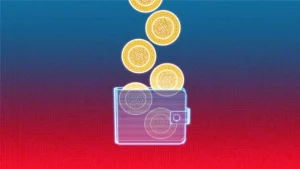It’s easy for junk to pile up at home, in the office, or even in outdoor spaces. Getting rid of trash—old furniture, broken appliances, heaps of obsolete paperwork—can seem daunting. Still, you may keep clutter-free surroundings and streamline Junk Disposal with a few intelligent moves. These pointers should help you get going.
Declutter First
Decluttering helps one start to simplify trash disposal. Start with evaluating the things you no longer use or need. Make three piles—keep, donate, and trash. This approach will enable you to distinguish between what can be recycled or donated and what really has to be thrown away. Regular decluttering also helps to avoid an overabundance of pointless trash over time.
Sort and Organize
Organizing your trash into groups—such as recyclables, electronics, hazardous waste, and ordinary trash—will help you greatly simplify disposal. Many times, different kinds of trash need distinct disposal techniques. For example, paper and cardboard can go into ordinary recycling bins; electronics and hazardous objects like batteries or paint cans should be sent to specialized recycling centers.
Use Professional Junk Removal Services
Should the amount of trash overwhelm you personally, think about using a professional trash removal company. These firms can effectively sort through the goods for recycling, donation, or appropriate disposal and handle big loads. Using experts guarantees responsible handling of garbage and saves time.

Repurpose or Reuse
Consider creatively how you might use objects before you toss them. While jars and containers can be used for storage, old furniture can often be rebuilt. Giving objects a second life helps to cut the waste load headed toward landfills.
Follow Local Disposal Regulations
Every community has waste disposal policies, including timetables for trash pickup and special facilities for hazardous material. Learn these rules to help you to avoid fines and guarantee that your trash is disposed of in an environmentally pleasant way.
Adopt Minimalist Habits
Prevention is better than cure. Living simply will help you prevent first-hand accumulation of extraneous objects. Only buy what you really need, then try to recycle or donate things when you replace or upgrade them.
Schedule Regular Cleanups
Change Junk Disposal from a one-time endeavor to a regular habit. Planned frequent cleanings help to avoid clutter from overtaking you. Set aside time every month or every three months to sort through your possessions, particularly in garages, attics, and basements. This constant technique guarantees that trash doesn’t gather unseen.
These suggestions can help you to simplify trash removal and support better, more sustainable surroundings. Consistent efforts and good preparation will help you keep your area neat while reducing waste.


























